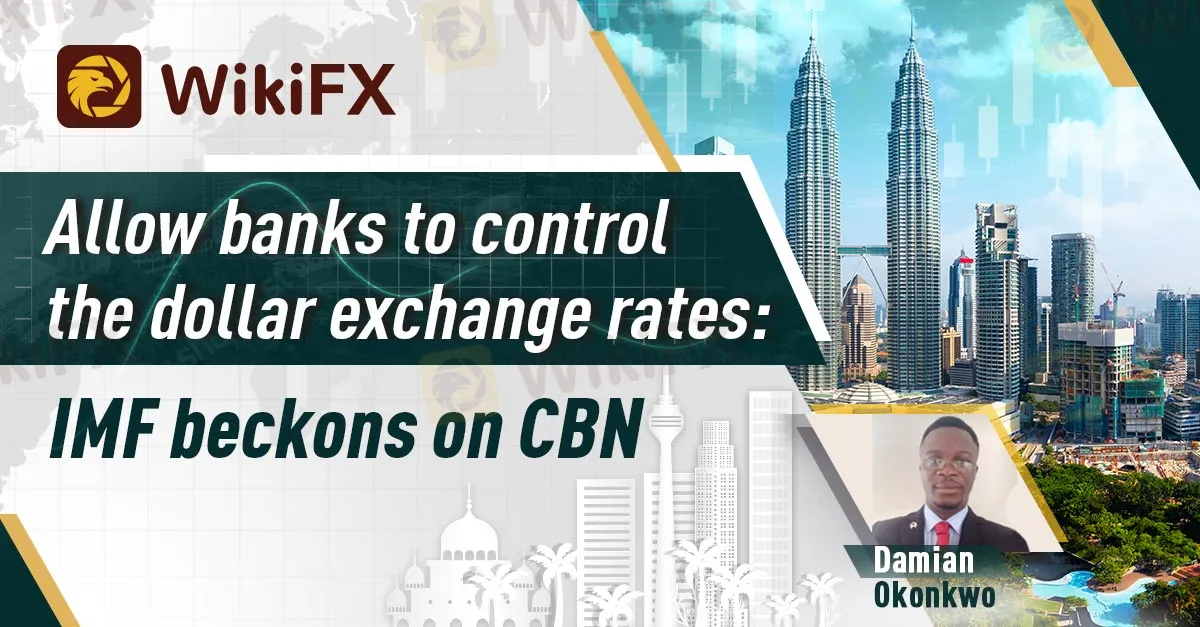简体中文
繁體中文
English
Pусский
日本語
ภาษาไทย
Tiếng Việt
Bahasa Indonesia
Español
हिन्दी
Filippiiniläinen
Français
Deutsch
Português
Türkçe
한국어
العربية
Allow banks to control the dollar exchange rates: IMF beckons on CBN
Abstract:The International Monetary Fund (IMF) has called on the Central Bank of Nigeria (CBN) to re-examine its foreign exchange (FX) management policy which allowed the apex banks to control the dollar exchange rates within the country. They considered this as limiting the market volatility by preventing the commercial banks to freely determine Fx buy-sell rates in the I&E windows.

By: Damian Okonkwo

The International Monetary Fund (IMF) has called on the Central Bank of Nigeria (CBN) to re-examine its foreign exchange (FX) management policy which allowed the apex banks to control the dollar exchange rates within the country. This had left the commercial banks sourcing to obtain dollars for their clients.
Addressing the present FX crisis in Nigeria in its 2022 Article IV Consultation presented during its official visit to the country, the IMF called on the CBN to allow the commercial banks to control the dollar exchange rates including the buy-sell prices as this will help reduce the dollar scarcity and improve the FX supply in the market. According to the IMF:
“In the medium term, the CBN should step back from its role as main forex intermediator, limiting interventions to smoothing market volatility and allowing banks to freely determine forex buy-sell rates.”
Thus, the IMF believed that allowing commercial banks to control the exchange rate will further increase the FX inflow into the country.
Speaking further on this, the IMF explained that the banks maintaining a uniform and market-clearing FX exchange rate is very necessary for boosting foreign investors' confidence in the economy.
Nonetheless, IMF stated that the continued present FX shortage, and practice of maintaining a stable exchange rate by the CBN amidst a weak Naira due to high inflation and limited debt servicing policies will all the more trigger fears of more future devaluation for the Naira amongst investors.
Describing this, the IMF stated that “These factors hinder much-needed capital inflows, encourage outflows, and constrain private sector investment.”
Above all, the body advised the Nigerian government to consider reducing its tax rate to fair levels at par with the standards of the Economic Community of West African States (ECOWAS).

Disclaimer:
The views in this article only represent the author's personal views, and do not constitute investment advice on this platform. This platform does not guarantee the accuracy, completeness and timeliness of the information in the article, and will not be liable for any loss caused by the use of or reliance on the information in the article.
Read more

FCA Identifies Clone Firm Exploiting Admiral Markets' Credibility
The UK Financial Conduct Authority (FCA) has issued a public warning regarding a fraudulent entity impersonating Admiral Markets, a legitimate and authorised trading firm. The clone firm, operating under the name Admiral EU Brokers and the domain Admiraleubrokerz.com, has been falsely presenting itself as an FCA-authorised business.

Malaysian Man Loses RM113,000 in Foreign Currency Investment Scam
A 57-year-old Malaysian man recently fell victim to a fraudulent foreign currency investment scheme, losing RM113,000 in the process. The case was reported to the Commercial Crime Investigation Division in Batu Pahat, which is now investigating the incident.

FCA Alerts Traders to New List of Unregulated and Clone Brokers
Protect your investments! Learn about unregulated firms flagged by the FCA and discover how WikiFX helps traders avoid scams and choose legitimate brokers.

The Funded Trader: Reactivates Accounts with Revised Payout Structure
Proprietary trading firm The Funded Trader has detailed its financial recovery efforts following a turbulent period marked by an unsustainable payout model. Addressing these challenges publicly, the firm outlined the steps being taken to resolve outstanding obligations and ensure operational sustainability.
WikiFX Broker
Latest News
eToro Expands Nationwide Access with New York Launch
Webull Partners with Coinbase to Offer Crypto Futures
Why Is UK Inflation Rising Again Despite Recent Lows?
Hackers Charged for $11M Crypto Theft Using SIM-Swaps
Role of Central Banks in the FX Market
FCA Alerts Against Sydney FX
What Makes Cross-Border Payments Easier Than Ever?
Trader Exposes Unethical Practices by STP Trading
Interactive Brokers Launches Tax-Friendly PEA Accounts in France
Google Warns of New Deepfake Scams and Crypto Fraud
Currency Calculator


